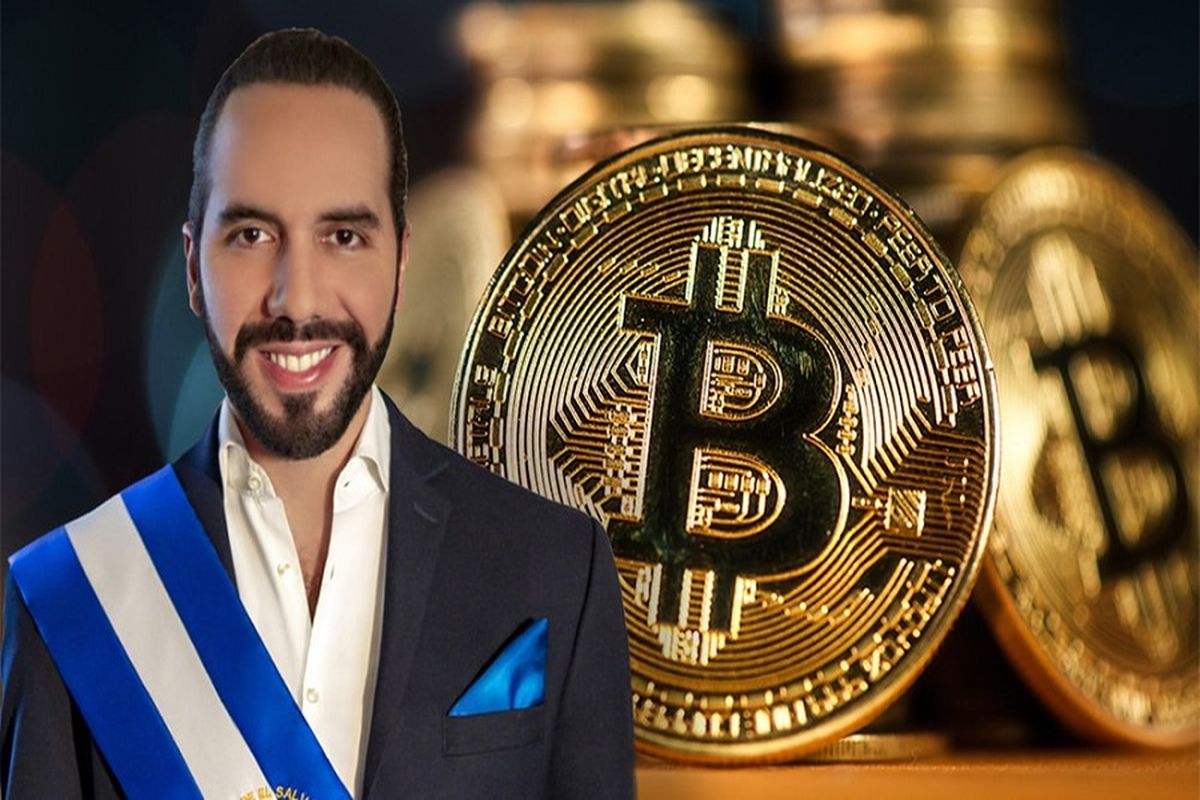Many current and former heads of state throughout the world have used cryptocurrency and blockchain as political tools.
Several world leaders have been openly supportive of digital assets and cryptos while in office or while they were campaigning. Although the technology is still nascent and untested as a political issue, most candidates have staked their reputations on blockchain and crypto.
Nayib Bukele, El Salvador
Now the former president of El Salvador as he campaigns for his next term in office, Nayib Bukele is undoubtedly the most outspoken head of state globally on crypto. He supported and pioneered a legislative path to make Bitcoin (BTC) legal tender in El Salvador in 2021. He directly linked his presidency to cryptocurrency often boasting about buys on the X platform.
Under Bukele’s presidency, Bitcoin kiosks have been installed around El Salvador, and the president reported in December that the nation’s Bitcoin investments were profitable after the crypto market downturn of 2022. In 2024, El Salvador’s Ministry of Education aims to introduce a Bitcoin education program for all public schools.
Javier Milei, Argentina
In November 2023, Javier Milei won a presidential run-off election in Argentina against his opponent, Sergio Massa, amid staggering inflation rates and general discontent with the nation’s economy. Milei was quoted previously referring to Bitcoin as a movement toward “the return of money to its original creator, the private sector.”
Most crypto proponents in Argentina have called on the new president to follow closely in Bukele’s path in recognizing Bitcoin as legal tender in the nation and ignore the need for the Financial Action Task Force’s Travel Rule. At the time of writing, Milei had been in office for less than a week and had not even enacted any crypto-related policies.
Donald Trump, United States of America
Donald John Trump, the former president of the United States, is now facing many felony charges related to his role in trying to subvert the results of the 2020 presidential election and illegal business practices. He has not been the most vocal person on crypto in the Republican Party – see Vivek Ramaswamy or Robert F. Kennedy Jr. — but has already linked digital assets directly to his 2024 campaign.
Trump has had several non-fungible token (NFT) drops, including one that featured his mugshot from his surrender to authorities in Georgia. Nonetheless, after he departed from office in 2021, he referred to cryptos as ‘fake’ and “a disaster waiting to happen.”
Rishi Sunak, United Kingdom
Coming to power after a politically and economically chaotic time in the United Kingdom, Rishi Sunak supported many policies in favor of digital assets before being sworn in as UK Prime Minister. In 2020 and 2021, as Chancellor of the Exchequer, Sunak said he would prioritize financial technology, and officials would consult on different pioneering reforms “to support the safe adoption of cryptoassets and stablecoins.”
Since he assumed office in October 2022, Sunak has majorly not commented publicly about cryptos. Shortly after he became prime minister, FTX crypto exchange filed for bankruptcy, and several high-profile collapses and arrests shook the industry.
Related:The UK Seems Ready To Lead Global Crypto Regulations
Faustin-Archange Touadéra, Central African Republic
Just like Trump and Bukele, Central African Republic (CAR) President Faustin-Archange Touadéra is a highly active social media user. He announced policies related to blockchain and crypto on X. In April 2022, Touadéra announced Bitcoin would soon be considered legal tender in the CAR together with the franc. Later, he launched Sango, an initiative to establish a “legal crypto hub” in the CAR to help attract businesses and global crypto enthusiasts.
Alexander Lukashenko, Belarus
Belarusian President Alexander Lukashenko was reelected into office in 2020 but his victory was marked by allegations of mass voter fraud against opposition candidate Sviatlana Tsikhanouskaya. Lukashenko has backed policies meant to support crypto mining in the Russian-allied nation.
In 2019, he proposed deploying excess energy from nuclear power plants to mine and sell crypto. He later allegedly urged Belarusian workers to pursue the different opportunities offered by crypto mining companies instead of going for farming positions in other nations.
Before the contentious election, Lukashenko embraced digital assets in Belarus, advocating for the legalization of cryptocurrency and specific initial coin offerings in 2017. Following the Russian military’s intervention in Ukraine in 2022, Belarus has faced similar sanctions to those imposed on Russia, extending to the illicit utilization of cryptocurrencies.
Philip Davis, The Bahamas
Most in the crypto industry associate the Bahamas with the island country that used to host the headquarters of defunct cryptocurrency exchange FTX and its previous CEO, Sam Bankman-Fried. Part of the reason why a company like FTX relocated to the Bahamas in 2021 was the nation’s favorable crypto regulation, and Prime Minister Philip Davis supported such policies.
Related:Op Ed: Sam Bankman-Fried Offers Lessons on How Not to Be a Crypto CEO
Before the FTX exchange collapsed, Davis said the Bahamas wanted to set up a regulatory regime enabling crypto companies to grow and prosper on the island. The prime minister said he supported the Sand Dollar, the Bahamas’ central bank digital currency (CBDC), launched in 2020.








